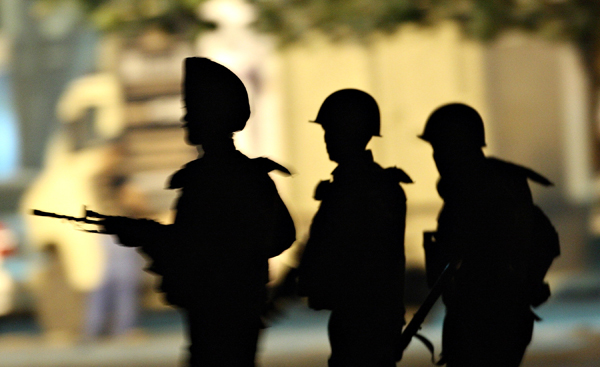Trending Terrorism in Asia
Olivia Enos /
A recent survey of indicators compiled and presented by The Heritage Foundation found that Asian countries comprise three out of the top four countries with the most domestic terrorist attacks.
Pakistan, Afghanistan, and India make it into the top five for domestic terrorist attacks, and Thailand, the Philippines, Sri Lanka, Nepal, China, Indonesia, Burma, and Bangladesh make the top 40.
There have been several domestic terrorism and terrorist issues in Asia in recent months.
Pakistan
Earlier this year, a splinter group of the Pakistani Tehreek-e-Taliban (TTP), TTP-Jundullah, claimed responsibility for bombing a Christian church in Peshawar, Pakistan, that killed 85 and wounded 140. The leader of the TPP-Jundullah threatened to continue to attack non-Muslims until the U.S. discontinued its drone attacks in Pakistan.
While Hakimullah Mehsud, the head of the TTP in Pakistan, was recently killed by a U.S. drone strike, the new leader, Mullah Fazlullah, is even more ruthless than Mehsud. He is responsible for ordering the shooting of teenage education activist Malala Yousafzai.
There will almost certainly be retaliatory attacks for the killing of Mehsud.
Philippines
The Moro National Liberation Front (MNLF) took an estimated 200 people hostage in a three-week standoff earlier this year. The clashes between the rebels and government forces resulted in the death of an estimated 200 Filipinos.
The hostages were predominately Christians and were mistreated by the MNLF during their time of captivity. Some of the hostages were used as human shields.
While terrorism in the Philippines often looks a lot more like organized crime, it nonetheless results in sustained violence that is perpetuated by corruption in the government.
Afghanistan
Perhaps the most well-known terrorist breeding ground is Afghanistan, where car bombings and acts of terrorism continue to proliferate. The continuation of terrorism in the region is a reminder that the U.S. should not be too hasty as it pulls troops out of Afghanistan in 2014.
Heritage Foundation senior fellow Lisa Curtis notes:
As the U.S. and coalition partners draw down troops in Afghanistan and hand over security operations to local forces, the U.S. must renew its diplomatic and financial commitment to a peaceful and stable Afghanistan that will not revert to its pre-war status as a haven for international terrorists.
Terrorism in Asia is not a threat of the past but a threat of the present. The U.S. should reassure friends and allies in the region that it is committed to peace and security in Asia. One way the U.S. can do that is through maintaining its commitments in Afghanistan.

